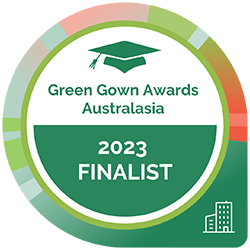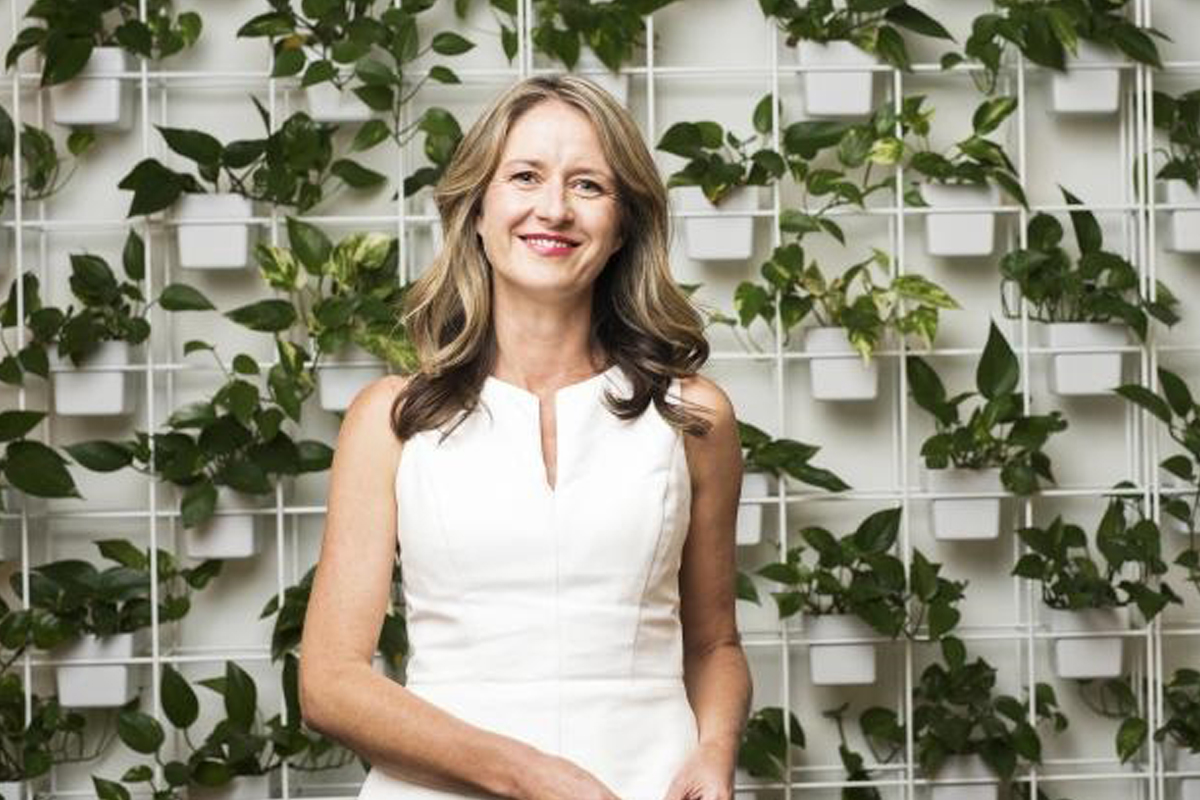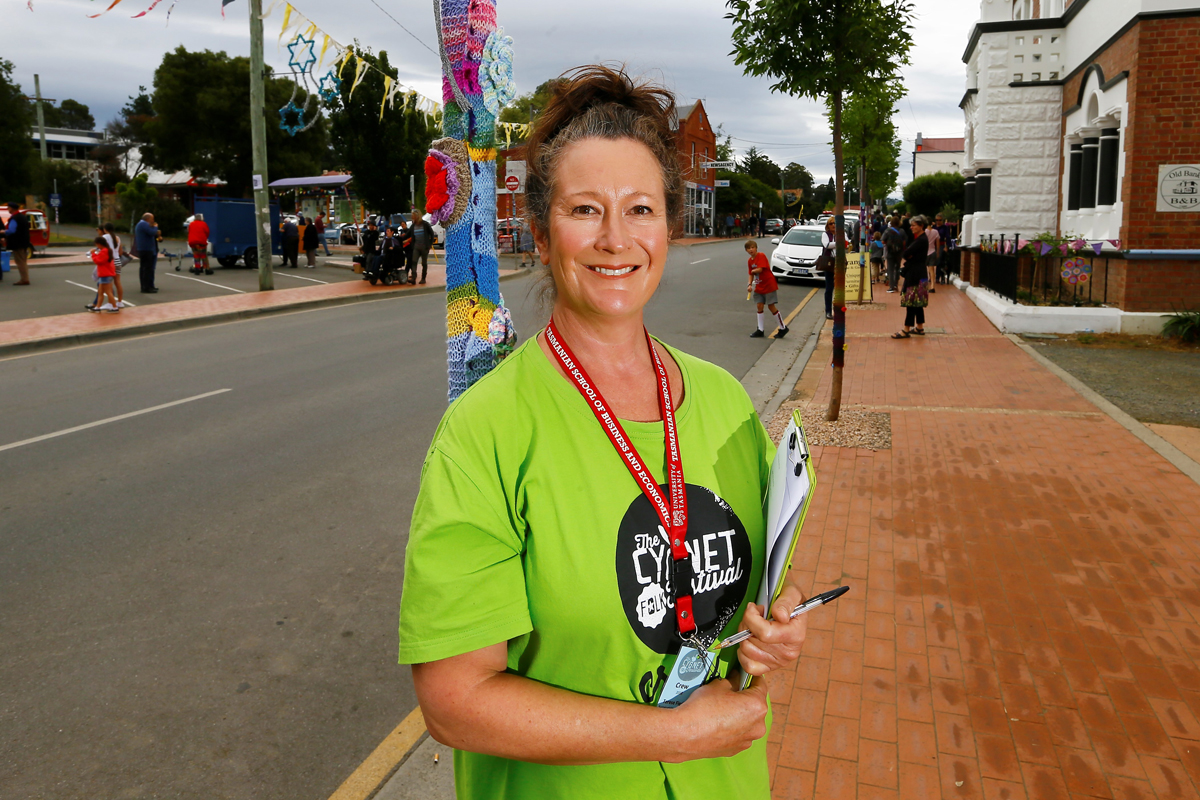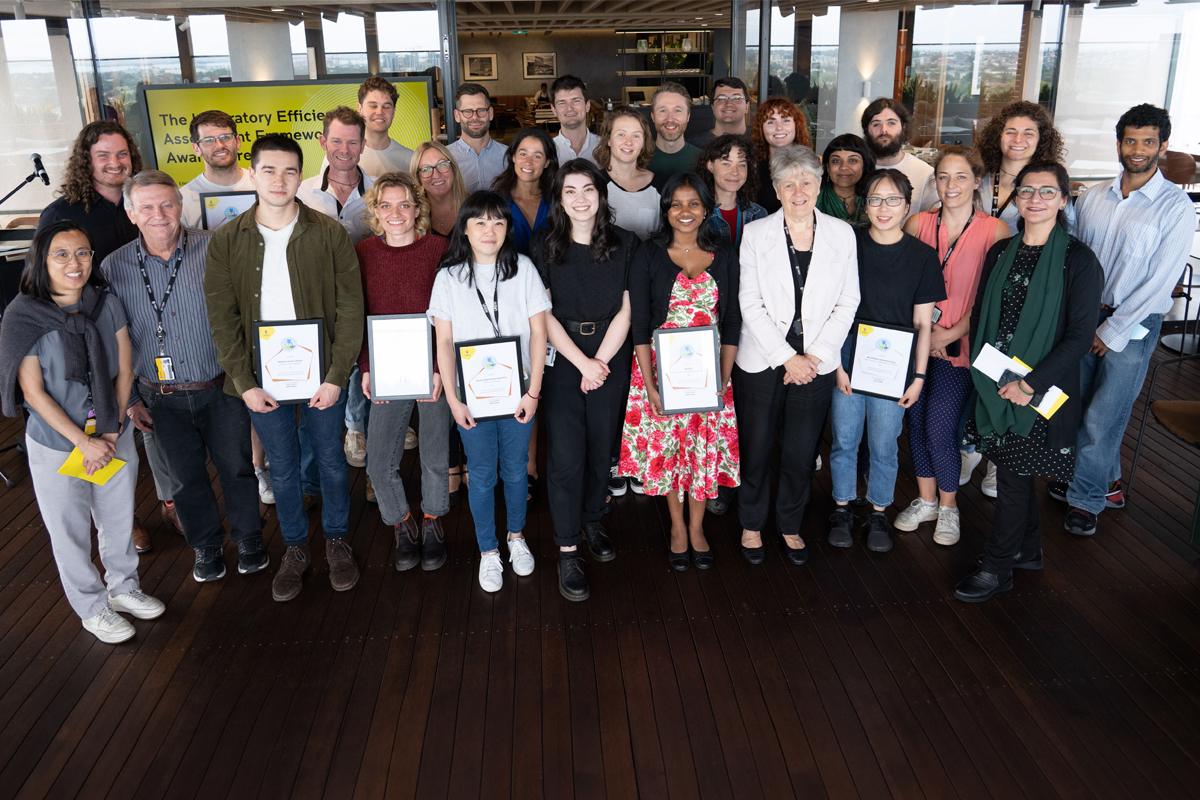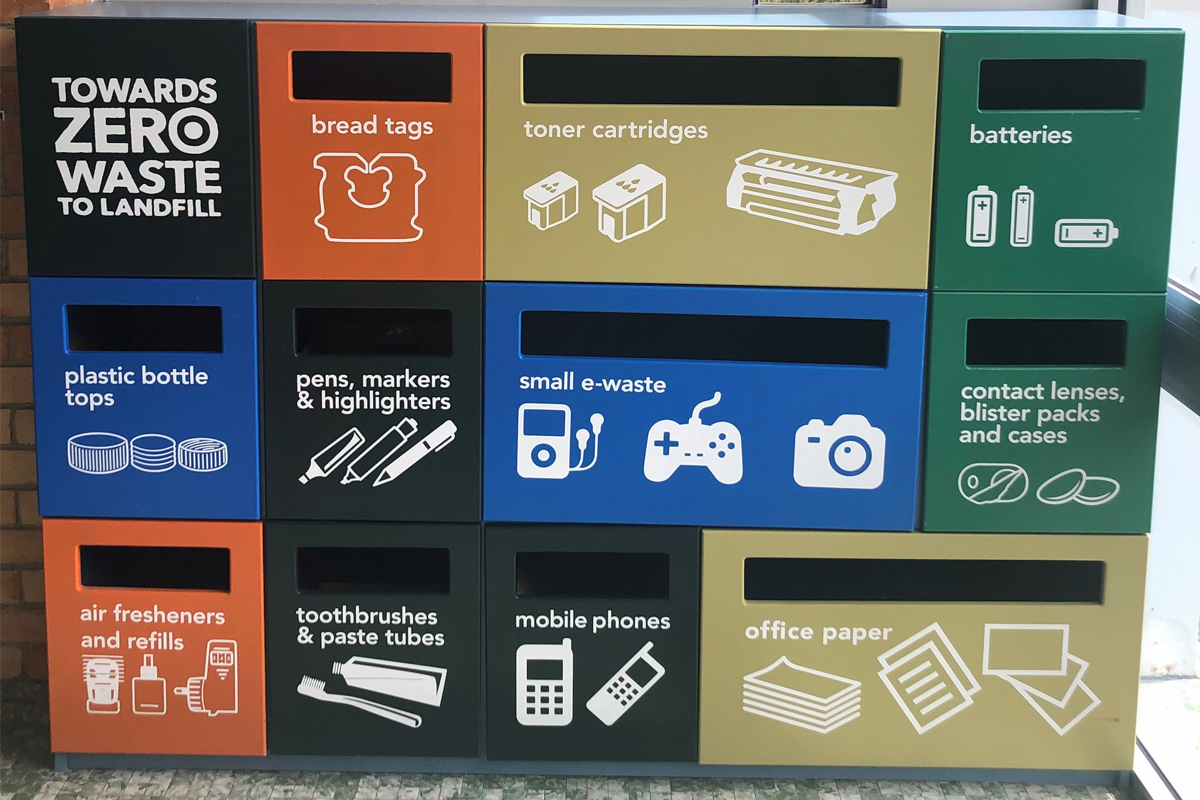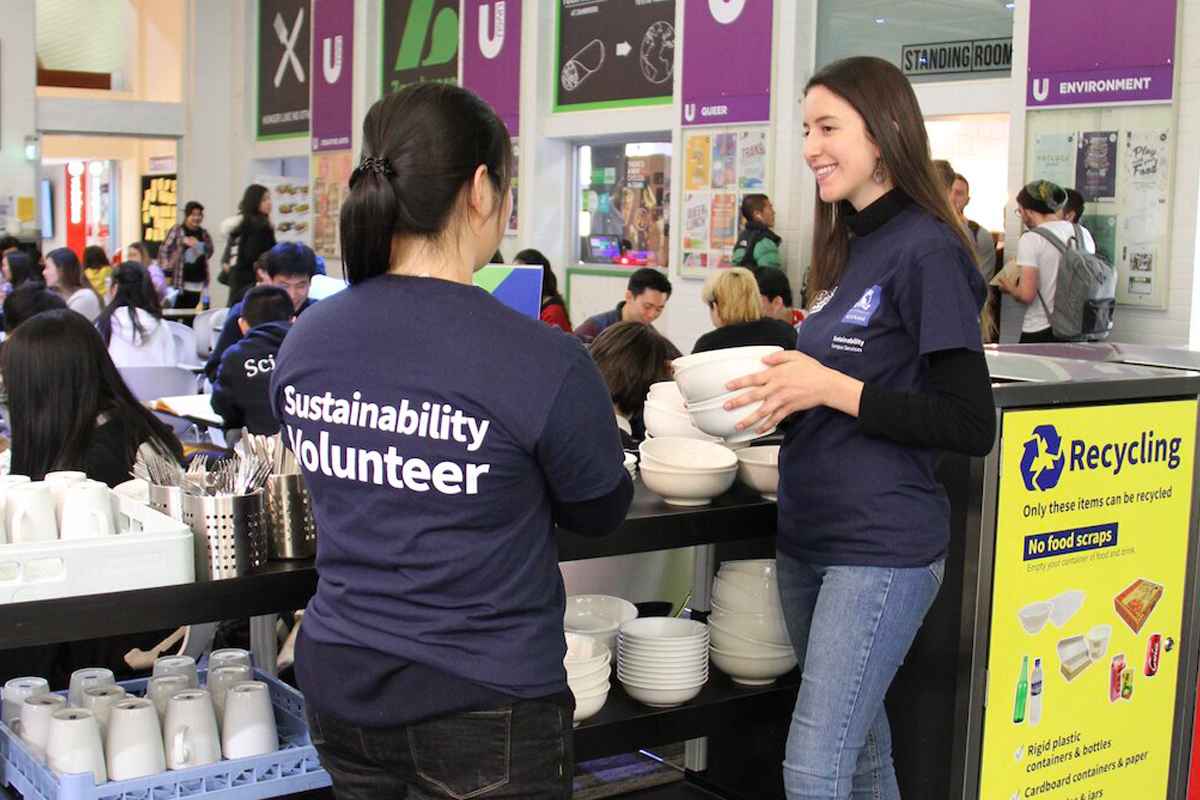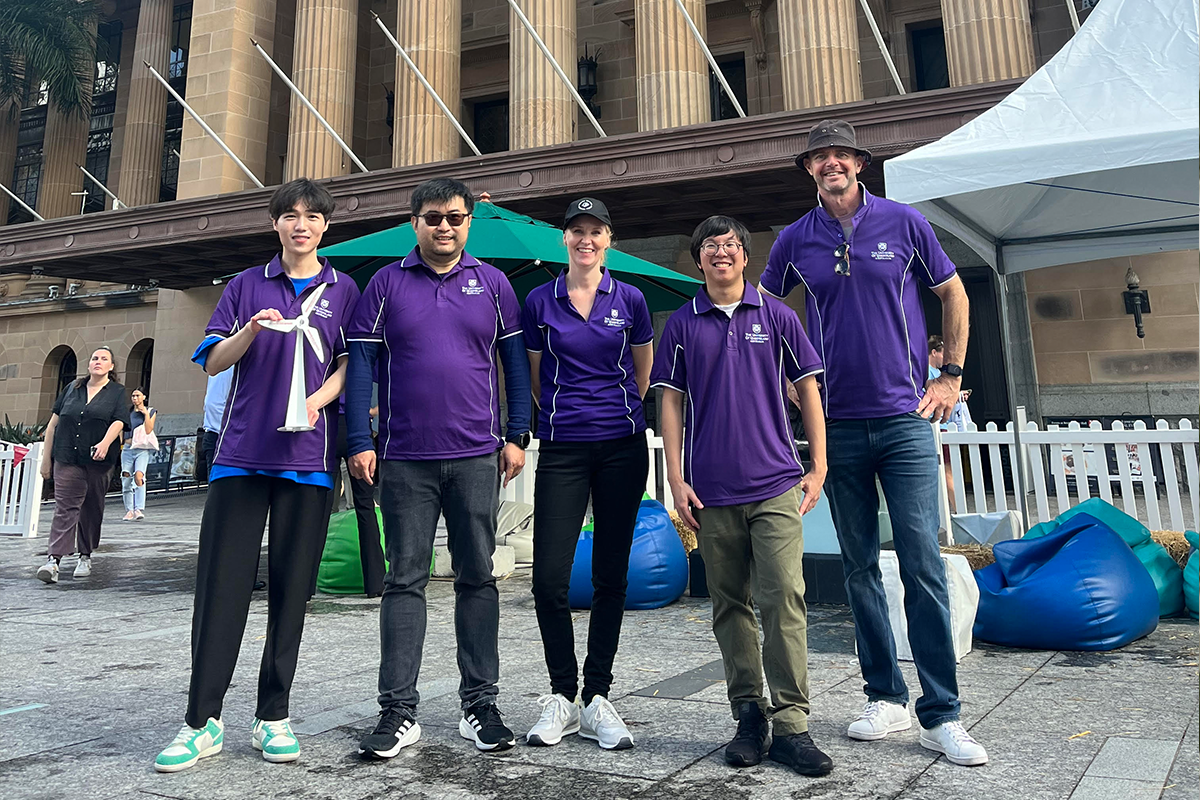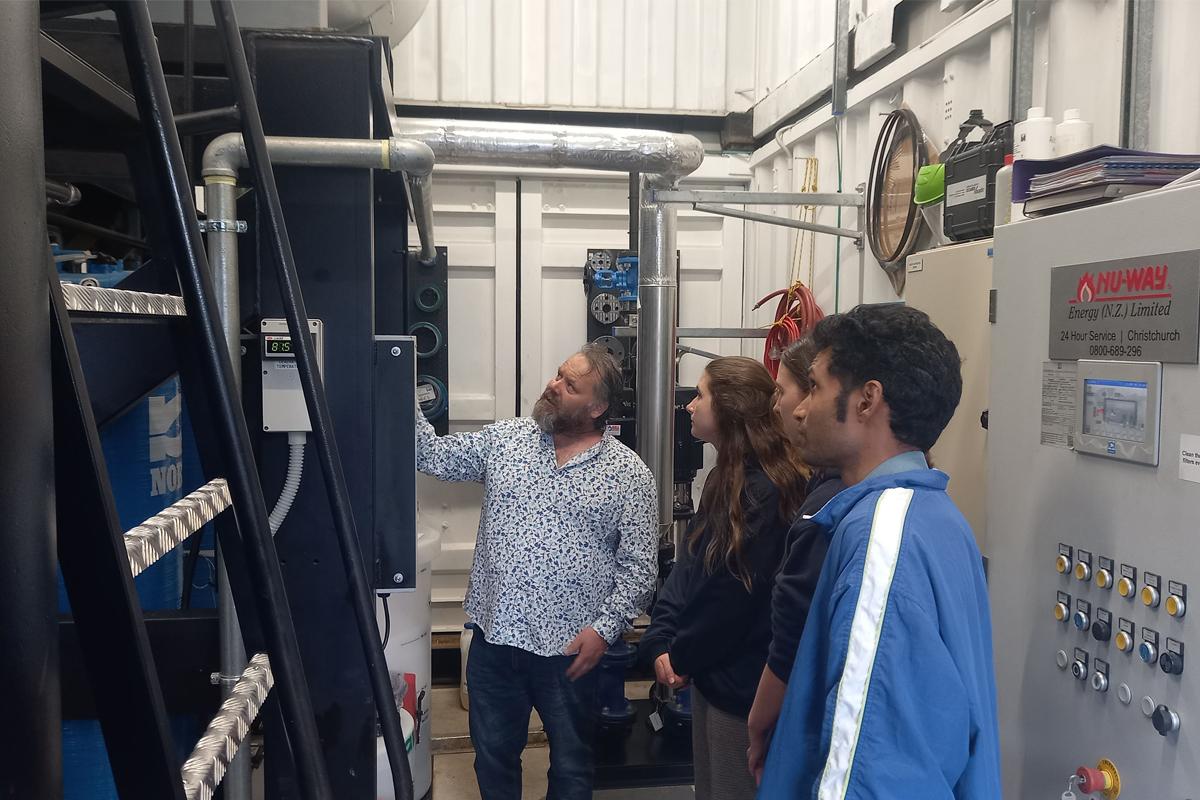Sustainability Champion – Staff category
This is a difficult question to answer because I am uncomfortable putting myself on some high pedestal and I know that you will be receiving many applications from people who are doing exceptional things to advance sustainability in their organisations. Not knowing the nature of these submissions, it is impossible to say how the merit of this one compares. What I would consider here though is not only what people are doing in the way of good work, but also what many other people are unwilling to do.
What I mean by this is that my work sits at the unglamorous and dirty end of sustainability, meaning that my workdays have me elbow deep in the food scraps that our cafes and student residences produce, much of which would be too off-putting for most people to deal with. Being in the lower South Island of Aotearoa/New Zealand, I spend many days working in the cold and rain, manually adding food waste to the numerous large hot compost piles I have underway and feeding the worm farms on site. There is a good deal of separating contaminated packaging from the organic waste in order to optimise the quality and quantity of compost produced by Pōpopo. It is not simple, office based work where one can avoid foul weather and foul smelling waste.
To prepare for this work, I voluntarily enrolled in and competed a horticulture qualification which was not a job requirement but which I felt was necessary to develop the best understanding I could of the practical science of effective organic waste recycling. I spend a good deal of time outside of my working hours keeping up with developments in the area and I have developed a number of systems that extend the impact of my work beyond what is strictly required of me. As explained below, this includes expanding waste collection to local cafes and student flats which again, is not in my job description. I undertake this extra work because I believe it is important and influential work and understand that some individuals have to go beyond the minimum expected to make a real difference.
As for data, these are the most important figures relating to my work and impact. In 2023:
- 4,574.3 kgs of food waste were diverted from landfill
- 32 kgs of plastic contaminants were removed and recycled
- 1,713.3 kgs of off-site food waste were diverted from landfill
- 7 cubic meters ot compost were produced
- 8 kgs of vermicompost were produced
- 77 people participated in workshops and tours
The significance of these figures is explained a little more in the sections that follow but the most important thing to note is that they are part of a larger integrative system that aims to close the loop on organic waste and convert landfill into nutritious inputs for the many gardens and food producing areas that we have on campus. They are all part of a circular economy that saves considerable amounts of money in reducing landfill charges, the costs of offsetting our emissions, and the expense of buying commercial compost from outside sources. Although it is difficult to put a precise figure on the money Pōpopo saves us as an organisation, purchasing soil-enhancing compost and vermicompost alone would exceed NZ $4,000 p.a, Yet this radically underestimates the real impact of the work I do as the complete costs of emitting highly potent methane gas from landfill is not covered by these figures. The social and environmental costs are effectively invisible in the current economic metrics and radically underestimated in any calculation of the true benefits of diverting organic waste from landfill.
The work I do to spread awareness and bring in people from the community to learn about composting is purely voluntary and undertaken as a matter of personal commitment to spreading the awareness and skills needed for others to join in this essential work. I am also a nominated member of the executive-level Sustainable Impact Group at the Polytechnic which is developing policies and targets for our institutional emissions and reports to our governing council. This again is voluntary work, done in my own time, and beyond the official scope of my job title.
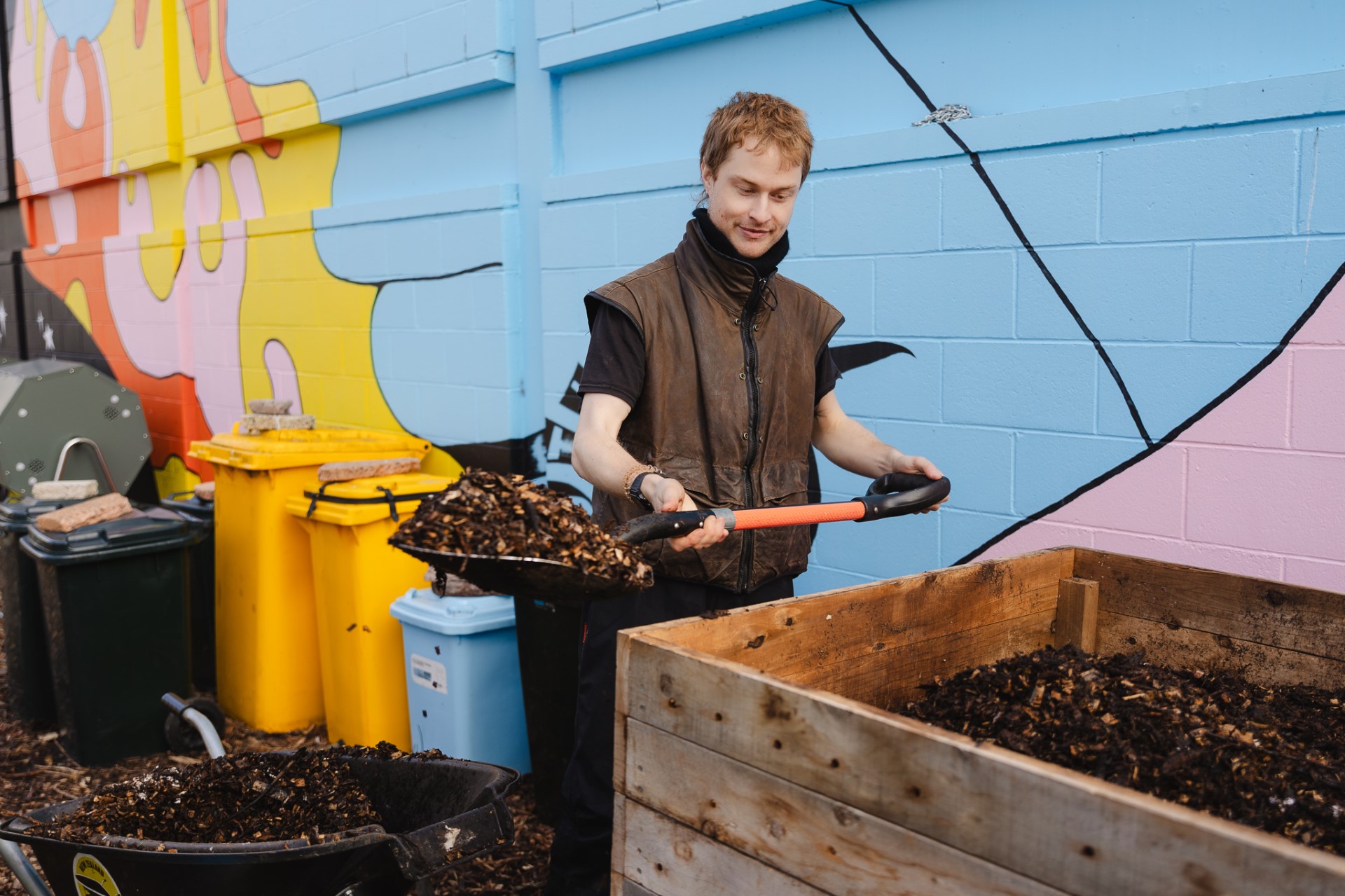
Impact and benefits
The work I do is important for many reasons, but the main impact comes from diverting a significant stream of waste from landfill. Over the past year, Pōpopo has processed over 6.25 tonnes of organic waste saving approximately 15.6 tonnes of CO2(e) that would otherwise be released into the atmosphere. This is the equivalent of removing more than ten internal combustion cars from the road each year. As an institution, Otago Polytechnic/Te Pūkenga is wrestling with the dynamics of replacing much of our ICE fleet with electric vehicles which is very expensive. It also involves significant hidden costs given the large ecological footprint involved in manufacturing these vehicles. Removing organic materials from our waste stream advances us towards our climate neutral goals in a simple but highly effective way. On the other side of the coin, there are several hidden benefits to creating compost and worm castings, as using rich organic materials to fertilise soils has a postive benefit in facilitating higher carbon storage in the ground.
The work I do at Pōpopo is also of benefit to the many learners, teachers and community members who attend workshops and tours of the facilities and spreads a positive sense that problems can be, and are, being addressed in meaningful ways. As explained more fully in the next section, this is important in times when people often feel at a loss as to how to lower their own personal impact on the planet. Playing a role as an inspirer of action for others is central to the work I do.
This work is also of high importance in terms of staff and students feeling proud of what their organisation is doing to tackle the waste problems of our current ways of living. Pōpopo is regularly raised as an example of excellent practice and is prominent in our public profile as a responsible and forward-thinking organisation. As an increasing awareness of the challenges of climate change spreads through the generation graduating from high school, this alignment of positive purpose with practical action stands out in an environment where so many organisations seem keen to announce their good intentions, but fail to live up to these ideals in practice. Recycling our messy organic waste signals an integrity that our learners and teachers can feel rightfully proud of.
The work I do in this area is a job requirement to a degree as I was hired to work on this project but much of what I do goes well beyond the minimum required. In preparation for the job, I enrolled in and completed a Horticulture qualification and have experimented with and improved many of the day-to-day processes to create a steady stream of high quality inputs for our campus gardens. The collection of waste from beyond the campus (cafes and off-site student flats) is not a requirement of the job but something that I have engaged with to extend the scale of operations and the community’s awareness of the issues and solutions around organic waste. Looking forward, I want to expand this work further even though much of this work is effectively unpaid. For me, this is not really the point, and I am happy to put in the extra effort if it helps others and the larger cause of reducing the impacts of climate change.
Leadership and engagement
I think that the most important thing here is being a leader in the sector. Pōpopo was the first full organic recycling operation in the NZ educational sector and operates at a scale that a small number of comparable operations are striving to achieve. It is having influence as others catch up and I am regularly asked to provide information and perspective to many other organisations including other higher education institutions, local government, and area schools. Pōpopo has been featured in the local press and in 2022, had the honour of hosting the Prime Minister’s Chief Scientific Advisor who requested a tour as part of a fact-finding mission in advance of developing new national level recycling strategies.
Engaging local cafes
There are several aspects of Pōpopo’s work that make it a genuine leader in the sector and this is not only in creating constant improvements in efficiency and quality, but also in collecting food waste from local cafes in an initiative that raises funds to help the operation be self-sustaining. This work which effectively diverts organic waste away from landfill is beneficial also in educating the hospitality sector on the how to properly separate organic waste and it gives them the opportunity to engage with positive solutions that benefit their own desires to become more sustainable.
Engaging students
I am currently working on a pilot programme that involves collecting organic food waste from student flats. This is a subscription service that involves collecting the waste in mid-size buckets and transporting this back to site using a cargo bike adapted for the purpose by the Polytechnics design and engineering students. This expands engagement by allowing students to work on practical projects that bring sustainability to the heart of their learning. I also work with students in a variety of programmes including horticulture where they are given the opportunity to volunteer and learn in a hands-on way. Collecting organic waste from student flats brings waste solutions to their door (literally) and there is an increasing interest, particularly from those who know people already in the collection scheme and who have seen how well it can work. There is far greater demand than one person can meet but I see the current programme as being only a pilot for a much larger and more incluse operation going forward.. There is no other comparable scheme anywhere in the New Zealand tertiary sector.
In addition to the above, I run regular workshops for students on how to compost at home and sessions forour Horticulture foundation programmes. The compost and vermicompost I make is used to nurture the many fruits and vegetables that we grow on campus for students (and staff) to enjoy. This is all nutritious and organic food that includes apples, feijoas, apricots, pears, kale, spinach, pumpkins, artichokes, lemon verbena, winter greens and garlic. These are particularly appreciated by students facing ever-rising food costs on limited budgets.
Engaging staff
Pōpopo provides several of our faculty with opportunities to engage their learners in structured projects such as those mentioned above. Staff are invited to workshops on composting and how to start their own worm farms (so that reductions of waste can spread beyond the campus) and are welcome to collect compost and worm casting for use in their own gardens.
Engaging community
I run workshops for a wide range of local groups including primary and secondary schools, students from the nearby University of Otago (I was featured in a full article in the University of Otago’s student magazine in June 2023). I have also given tours of Pōpopo to local community garden groups, and businesses in addition to the other community groups previously mentioned.
While all of these groups are important I am particularly motivated to work with young people who hold such potential to make life-long changes that will have a positive impact on the future of the planet.
Wider societal impact
The leadership and engagement mentioned in the previous section is significant in signalling that change is possible in times when many organisations and individuals seem to be overwhelmed by the challenges of climate change. Recent reports show that the overwhelming majority of the NZ public is ‘very concerned’ about the impacts our increasing emissions will have on society and the broader environment (this runs at over 70% of the public and even more for the younger generation), At the same time, the majority feel that much more leadership needs to be shown by our major public institutions. Seeing demonstrable examples of proactive engagement is known to generate hope and action and the work I do with Pōpopo can, and does inspire others to change. The work done to recycle all of our institutions organic waste is an inspiring example to other organisations and the tours and workshops I have run here in Ōtepoti/Dunedin spread awareness and provided a working model that others can emulate. The University of Otago, the Southern Institute of Technology and the Auckland International Campus have all come to learn about what is done here and have emerging plans to replicate it in their own schemes. For a small operation then, it is having a disproportionately large influence.
This broader impact is not limited to institutes of higher learning but as outlined above, extends to shifting perceptions in a much wider sense as many from the wider community have come to learn, so extending the public’s understanding of circular economies and how these can be actioned. Collecting waste from cafes and student flats also spreads awareness and empowers individuals and organsiations to take action to reduce their own environmental impacts.
Ultimately though, the broadest benefit is in reducing the disastrous emissions of methane which are inordinately powerful warming gases. Aotearoa/New Zealand’s profile is dominated by these emissions (largely as a result of a national reliance on dairy farming) and it has been an area that many see as being impossible to address. The modest work that I am trying to expand here at the Otago Polytechnic signals that we can and should tackle this problem head-on and that there are solutions to these problems that we can all engage with as we try to secure a better future for us all.
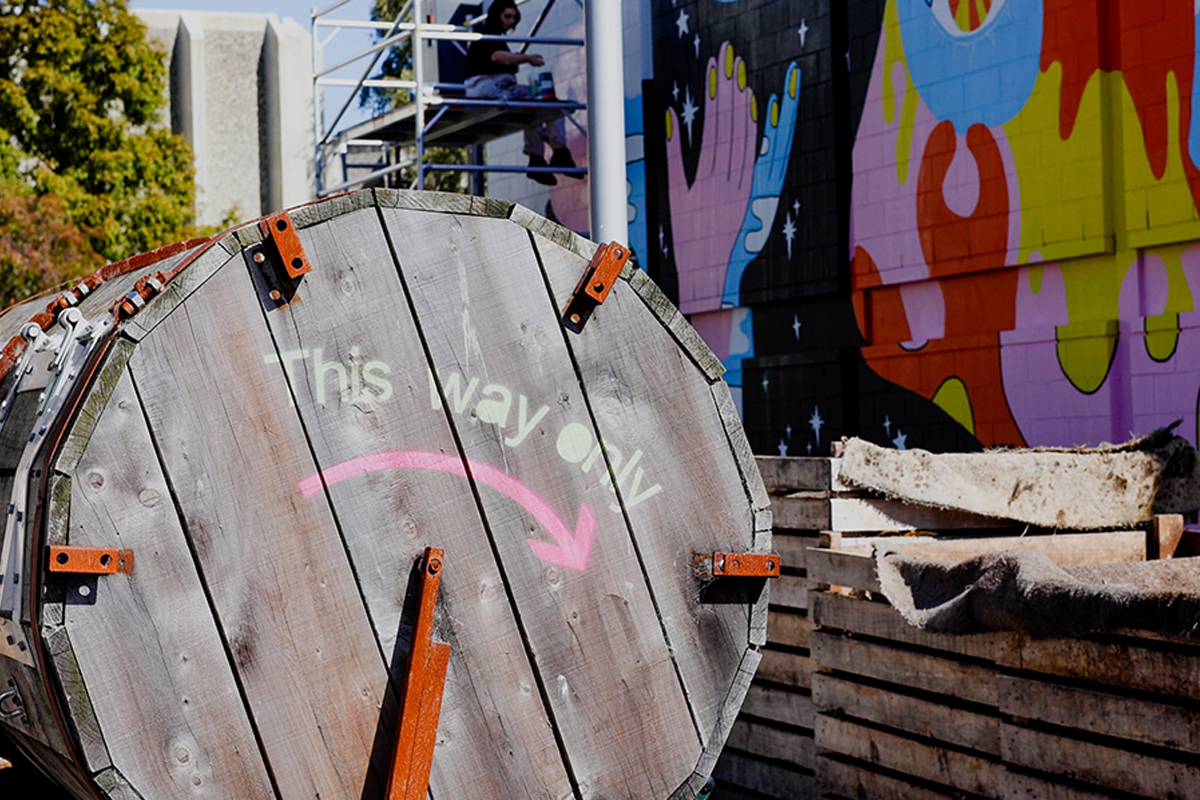
Related finalists
Sustainability Champion – Staff
Sustainability Champion – Staff
Sustainability Champion – Staff
Sustainability Champion – Staff
Sustainability Champion – Staff/Winners
Sustainability Champion – Staff/Winners
Sustainability Champion – Staff/Winners
Sustainability Champion – Staff/Winners
Sustainability Champion – Staff/Winners
Sustainability Champion – Staff/Winners
Past Winners
Creating Impact/Winners
Creating Impact/Winners
Leading the Circular Economy/Winners
Leading the Circular Economy/Winners
Leading the Circular Economy/Winners
Leading the Circular Economy/Winners
Next Generation Learning & Skills/Winners
Next Generation Learning & Skills/Winners
Next Generation Learning & Skills/Winners
Next Generation Learning & Skills/Winners
Next Generation Learning & Skills/Winners
Next Generation Learning & Skills/Winners
This is a difficult question to answer because I am uncomfortable putting myself on some high pedestal and I know that you will be receiving many applications from people who are doing exceptional things to advance sustainability in their organisations. Not knowing the nature of these submissions, it is impossible to say how the merit of this one compares. What I would consider here though is not only what people are doing in the way of good work, but also what many other people are unwilling to do.
What I mean by this is that my work sits at the unglamorous and dirty end of sustainability, meaning that my workdays have me elbow deep in the food scraps that our cafes and student residences produce, much of which would be too off-putting for most people to deal with. Being in the lower South Island of Aotearoa/New Zealand, I spend many days working in the cold and rain, manually adding food waste to the numerous large hot compost piles I have underway and feeding the worm farms on site. There is a good deal of separating contaminated packaging from the organic waste in order to optimise the quality and quantity of compost produced by Pōpopo. It is not simple, office based work where one can avoid foul weather and foul smelling waste.
To prepare for this work, I voluntarily enrolled in and competed a horticulture qualification which was not a job requirement but which I felt was necessary to develop the best understanding I could of the practical science of effective organic waste recycling. I spend a good deal of time outside of my working hours keeping up with developments in the area and I have developed a number of systems that extend the impact of my work beyond what is strictly required of me. As explained below, this includes expanding waste collection to local cafes and student flats which again, is not in my job description. I undertake this extra work because I believe it is important and influential work and understand that some individuals have to go beyond the minimum expected to make a real difference.
As for data, these are the most important figures relating to my work and impact. In 2023:
- 4,574.3 kgs of food waste were diverted from landfill
- 32 kgs of plastic contaminants were removed and recycled
- 1,713.3 kgs of off-site food waste were diverted from landfill
- 7 cubic meters ot compost were produced
- 8 kgs of vermicompost were produced
- 77 people participated in workshops and tours
The significance of these figures is explained a little more in the sections that follow but the most important thing to note is that they are part of a larger integrative system that aims to close the loop on organic waste and convert landfill into nutritious inputs for the many gardens and food producing areas that we have on campus. They are all part of a circular economy that saves considerable amounts of money in reducing landfill charges, the costs of offsetting our emissions, and the expense of buying commercial compost from outside sources. Although it is difficult to put a precise figure on the money Pōpopo saves us as an organisation, purchasing soil-enhancing compost and vermicompost alone would exceed NZ $4,000 p.a, Yet this radically underestimates the real impact of the work I do as the complete costs of emitting highly potent methane gas from landfill is not covered by these figures. The social and environmental costs are effectively invisible in the current economic metrics and radically underestimated in any calculation of the true benefits of diverting organic waste from landfill.
The work I do to spread awareness and bring in people from the community to learn about composting is purely voluntary and undertaken as a matter of personal commitment to spreading the awareness and skills needed for others to join in this essential work. I am also a nominated member of the executive-level Sustainable Impact Group at the Polytechnic which is developing policies and targets for our institutional emissions and reports to our governing council. This again is voluntary work, done in my own time, and beyond the official scope of my job title.

Impact and benefits
The work I do is important for many reasons, but the main impact comes from diverting a significant stream of waste from landfill. Over the past year, Pōpopo has processed over 6.25 tonnes of organic waste saving approximately 15.6 tonnes of CO2(e) that would otherwise be released into the atmosphere. This is the equivalent of removing more than ten internal combustion cars from the road each year. As an institution, Otago Polytechnic/Te Pūkenga is wrestling with the dynamics of replacing much of our ICE fleet with electric vehicles which is very expensive. It also involves significant hidden costs given the large ecological footprint involved in manufacturing these vehicles. Removing organic materials from our waste stream advances us towards our climate neutral goals in a simple but highly effective way. On the other side of the coin, there are several hidden benefits to creating compost and worm castings, as using rich organic materials to fertilise soils has a postive benefit in facilitating higher carbon storage in the ground.
The work I do at Pōpopo is also of benefit to the many learners, teachers and community members who attend workshops and tours of the facilities and spreads a positive sense that problems can be, and are, being addressed in meaningful ways. As explained more fully in the next section, this is important in times when people often feel at a loss as to how to lower their own personal impact on the planet. Playing a role as an inspirer of action for others is central to the work I do.
This work is also of high importance in terms of staff and students feeling proud of what their organisation is doing to tackle the waste problems of our current ways of living. Pōpopo is regularly raised as an example of excellent practice and is prominent in our public profile as a responsible and forward-thinking organisation. As an increasing awareness of the challenges of climate change spreads through the generation graduating from high school, this alignment of positive purpose with practical action stands out in an environment where so many organisations seem keen to announce their good intentions, but fail to live up to these ideals in practice. Recycling our messy organic waste signals an integrity that our learners and teachers can feel rightfully proud of.
The work I do in this area is a job requirement to a degree as I was hired to work on this project but much of what I do goes well beyond the minimum required. In preparation for the job, I enrolled in and completed a Horticulture qualification and have experimented with and improved many of the day-to-day processes to create a steady stream of high quality inputs for our campus gardens. The collection of waste from beyond the campus (cafes and off-site student flats) is not a requirement of the job but something that I have engaged with to extend the scale of operations and the community’s awareness of the issues and solutions around organic waste. Looking forward, I want to expand this work further even though much of this work is effectively unpaid. For me, this is not really the point, and I am happy to put in the extra effort if it helps others and the larger cause of reducing the impacts of climate change.
Leadership and engagement
I think that the most important thing here is being a leader in the sector. Pōpopo was the first full organic recycling operation in the NZ educational sector and operates at a scale that a small number of comparable operations are striving to achieve. It is having influence as others catch up and I am regularly asked to provide information and perspective to many other organisations including other higher education institutions, local government, and area schools. Pōpopo has been featured in the local press and in 2022, had the honour of hosting the Prime Minister’s Chief Scientific Advisor who requested a tour as part of a fact-finding mission in advance of developing new national level recycling strategies.
Engaging local cafes
There are several aspects of Pōpopo’s work that make it a genuine leader in the sector and this is not only in creating constant improvements in efficiency and quality, but also in collecting food waste from local cafes in an initiative that raises funds to help the operation be self-sustaining. This work which effectively diverts organic waste away from landfill is beneficial also in educating the hospitality sector on the how to properly separate organic waste and it gives them the opportunity to engage with positive solutions that benefit their own desires to become more sustainable.
Engaging students
I am currently working on a pilot programme that involves collecting organic food waste from student flats. This is a subscription service that involves collecting the waste in mid-size buckets and transporting this back to site using a cargo bike adapted for the purpose by the Polytechnics design and engineering students. This expands engagement by allowing students to work on practical projects that bring sustainability to the heart of their learning. I also work with students in a variety of programmes including horticulture where they are given the opportunity to volunteer and learn in a hands-on way. Collecting organic waste from student flats brings waste solutions to their door (literally) and there is an increasing interest, particularly from those who know people already in the collection scheme and who have seen how well it can work. There is far greater demand than one person can meet but I see the current programme as being only a pilot for a much larger and more incluse operation going forward.. There is no other comparable scheme anywhere in the New Zealand tertiary sector.
In addition to the above, I run regular workshops for students on how to compost at home and sessions forour Horticulture foundation programmes. The compost and vermicompost I make is used to nurture the many fruits and vegetables that we grow on campus for students (and staff) to enjoy. This is all nutritious and organic food that includes apples, feijoas, apricots, pears, kale, spinach, pumpkins, artichokes, lemon verbena, winter greens and garlic. These are particularly appreciated by students facing ever-rising food costs on limited budgets.
Engaging staff
Pōpopo provides several of our faculty with opportunities to engage their learners in structured projects such as those mentioned above. Staff are invited to workshops on composting and how to start their own worm farms (so that reductions of waste can spread beyond the campus) and are welcome to collect compost and worm casting for use in their own gardens.
Engaging community
I run workshops for a wide range of local groups including primary and secondary schools, students from the nearby University of Otago (I was featured in a full article in the University of Otago’s student magazine in June 2023). I have also given tours of Pōpopo to local community garden groups, and businesses in addition to the other community groups previously mentioned.
While all of these groups are important I am particularly motivated to work with young people who hold such potential to make life-long changes that will have a positive impact on the future of the planet.
Wider societal impact
The leadership and engagement mentioned in the previous section is significant in signalling that change is possible in times when many organisations and individuals seem to be overwhelmed by the challenges of climate change. Recent reports show that the overwhelming majority of the NZ public is ‘very concerned’ about the impacts our increasing emissions will have on society and the broader environment (this runs at over 70% of the public and even more for the younger generation), At the same time, the majority feel that much more leadership needs to be shown by our major public institutions. Seeing demonstrable examples of proactive engagement is known to generate hope and action and the work I do with Pōpopo can, and does inspire others to change. The work done to recycle all of our institutions organic waste is an inspiring example to other organisations and the tours and workshops I have run here in Ōtepoti/Dunedin spread awareness and provided a working model that others can emulate. The University of Otago, the Southern Institute of Technology and the Auckland International Campus have all come to learn about what is done here and have emerging plans to replicate it in their own schemes. For a small operation then, it is having a disproportionately large influence.
This broader impact is not limited to institutes of higher learning but as outlined above, extends to shifting perceptions in a much wider sense as many from the wider community have come to learn, so extending the public’s understanding of circular economies and how these can be actioned. Collecting waste from cafes and student flats also spreads awareness and empowers individuals and organsiations to take action to reduce their own environmental impacts.
Ultimately though, the broadest benefit is in reducing the disastrous emissions of methane which are inordinately powerful warming gases. Aotearoa/New Zealand’s profile is dominated by these emissions (largely as a result of a national reliance on dairy farming) and it has been an area that many see as being impossible to address. The modest work that I am trying to expand here at the Otago Polytechnic signals that we can and should tackle this problem head-on and that there are solutions to these problems that we can all engage with as we try to secure a better future for us all.

Related finalists
Sustainability Champion – Staff
Sustainability Champion – Staff
Sustainability Champion – Staff
Sustainability Champion – Staff
Other finalists
Creating Impact
Creating Impact
Sustainability Champion – Staff/Winners
Sustainability Champion – Staff/Winners
Sustainability Champion – Student
Sustainability Champion – Student

